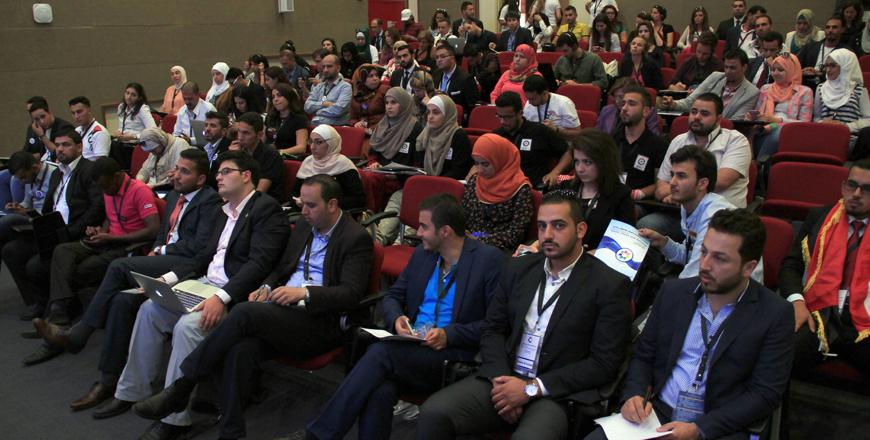You are here
Extremist groups prove adaptive to counterterrorism measures — expert
By Lauren Brackmann - Oct 09,2018 - Last updated at Oct 09,2018
AMMAN — Terrorist groups have proven to be resilient and adaptive to counterterrorism efforts, experts said on Tuesday.
Over the past two decades, terrorist organisations on the ground have made resourceful efforts in rebranding, mixing with other local groups, and finding gaps to fill within societies, experts taking part in the Amman Forum on Tuesday said.
“These groups are very focused on maintaining support in populations,” said Katherine Zimmerman, research fellow at the American Enterprise Institute in Washington, DC, during her speech the forum.
Although countries around the world, including the US and Jordan, have poured extensive resources into counterterrorism, the threat still stands.
“Over the past 15 years, we were combating violent extremism, but we failed,” Ibrahim Issa Abadi, general director at the Strategic Solutions at the National Centre for Leadership Development, said at the event.
He called on universities and institutions to study indicators of violent extremism, so countries can better develop targeted prevention strategies.
While ideology is the underpinning belief that allows terrorist organisations and individuals to work together in committing violent attacks, it is not the only factor that motivates and drives this extremism, the experts said.
They added that there are a number of reasons, including political exclusion, the lack of economic opportunities for youth and the marginalisation of certain groups.
According to Abadi, “the biggest source of extremism is in prisons” because this is where radicalised individuals can mingle with other extremists, only making them more extreme.
Mohammad Alidmat, former director of Jordan Military Centre for Counterterrorism and Extremism, echoed his statement at the forum saying: “Prisons could be the worst places on earth, but the best places for pollination of ideas and thoughts.”
Although countries around the world follow different protocols for addressing extremism in prisons, a common regime includes the concentration, separation, and isolation of terrorists in the prison, they said.
As countries experience a rise in homegrown radicalisation and terrorism, there is an increasing emphasis on the need for a comprehensive approach to prevent the spread of violent extremism, which can then lead to terrorist attacks.
In building a strategy for prevention, an encompassing range of local actors and sectors must be included, the participants said.
Local police and law enforcement, educators, and parents are vital in intervening and deterring individuals, especially youth (who are most vulnerable), from joining a terrorist organisation. However, there needs to be viable options and programmes in place within the community for members to turn to in seek of rehabilitation and education, they added.
Related Articles
AMMAN — Defeating terrorist groups in the field does not mean that they have been eliminated and that the war against terrorism is over, mil
MADABA — There is an urgent need to mobilise international resources to better address and counter violent extremism, with young people bein
AMMAN — The US Department of State has hailed Jordan as a “committed partner” in counterterrorism and countering violent extremism (CVE).In












